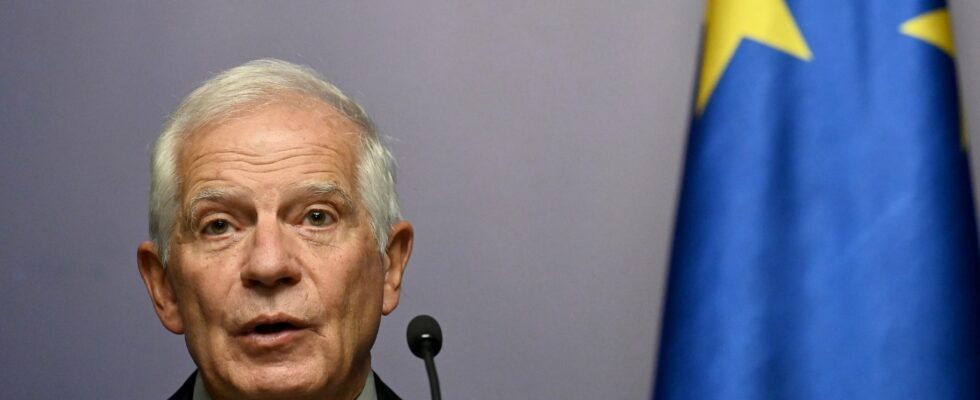Brussels looks towards the Pacific. Japan and the European Union unveiled a new security and defense pact this Friday, November 1 in Tokyo. The agreement is described as a “historic step” by the head of European diplomacy, Josep Borrell, in a video broadcast by AFP. Maritime security, space, cybersecurity, joint military exercises… This partnership provides for dialogue at the highest level and cooperation in the areas of the defense industry. “I am extremely happy to be here with Foreign Minister Takeshi Iwaya to announce the conclusion of this partnership on security and defense between the European Union and Japan,” said Josep Borrell.
In Tokyo to co-chair the 1st EU-Japan Strategic Dialogue with @MofaJapan_en
During the past years, EU – Japan bilateral relations have grown stronger than ever before
Today, we will open a new chapter as I will sign the 1st EU Security & Defense Partnership in the #Indo-Pacific pic.twitter.com/Lx1G0yj5Sr
— Josep Borrell Fontelles (@JosepBorrellF) November 1, 2024
Behind this desire for rapprochement, there is the fear of an extension of the Ukrainian conflict in Asia, in particular with the sending of North Korean troops to Russia. “We live in a very dangerous world,” the head of European diplomacy commented to journalists, who judges that this pact “deepens our ability to tackle emerging threats together.” He did not mention the security threat from China and put forward by Tokyo, worried by Beijing’s increased military pressure on Taiwan. Japan plans to increase its defense budget to 2% of GDP by 2027, and Europe could thus be a major ally in strengthening its arms industry.
The threat facing the China-Russia-North Korea axis
“As Japan and the European Union face an increasingly challenging security environment, the aim is to develop, deepen and strengthen cooperation and dialogue in all areas of security and defense”, insisted Takeshi Iwaya, specifying that this decision will precede greater collaboration in the fields of security and defense. For his part, Japanese Prime Minister Shigeru Ishiba, who could lead a minority government after disastrous general elections last week, said that “the Ukraine of today could be the East Asia of tomorrow.” .
The text of the new partnership between the EU and Japan, consulted by AFP, also plans to promote “concrete naval cooperation”, including joint exercises and stopovers in “third countries”. This agreement also includes discussions on “the development of defense initiatives, including the exchange of information on issues related to the defense industry.” Japan, which has depended on the United States for its military hardware for decades, is also developing a new fighter jet with EU member Italy and the United Kingdom, which should be ready to take off by 2035.
Next stop: South Korea
If Japan is the first country in the Indo-Pacific to adopt such a framework with the EU, Brussels is strengthening its ties in the region. After Tokyo, Josep Borrell is due to go to South Korea on Monday, November 4, where it is planned to launch a similar defense partnership “imminently”, according to the Japan Times. “My visit to two of our closest partners in the Indo-Pacific region is a key step in our efforts over the last five years to strengthen the active engagement of the EU,” Josep Borrell insisted in a press release, published THURSDAY.
The discussions should focus on North Korea, which has just tested a new solid-fuel intercontinental ballistic missile, the most advanced in its arsenal, according to the North Korean state agency. Especially since Pyongyang could improve its arsenal thanks to the Russian expertise from which it could benefit, in exchange for its support in the Ukrainian conflict.
As South Korea watches its neighbor move closer to Russia, Seoul could study the possibility of sending weapons directly to Ukraine in response. The country has until now opposed it due to a long-standing policy preventing it from supplying weapons in active conflicts. Brussels should also keep an eye on this file.
